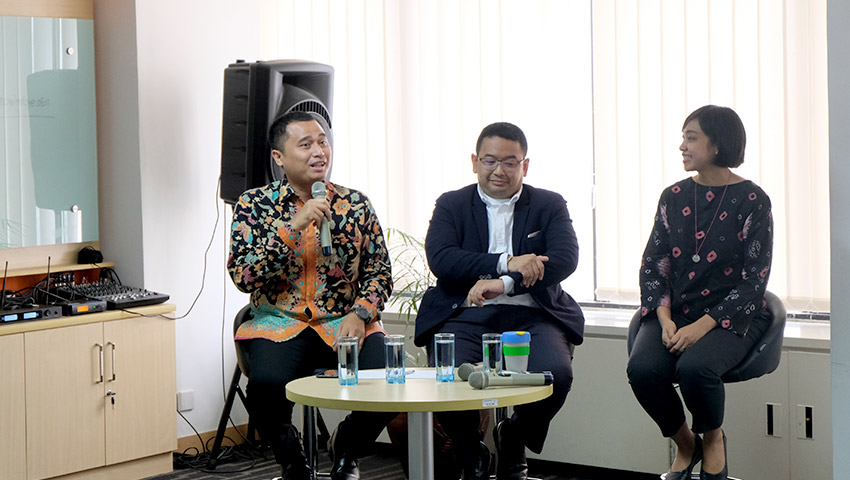JAKARTA - A regular forum aimed at encouraging the development of the knowledge sector ecosystem in Indonesia through partnerships between the private sector (companies and philanthropy) and research institutions, namely Research & Business Forum was held again in Jakarta, 29 August 2018. The 4th Edition of the Research & Business Forum held by Corporate-Community Partnership for Health Indonesia (CCPHI) in collaboration with the Knowledge Sector Initiative (KSI) takes the theme of "The Role of Research Institutions and The Industry in Encouraging Evidence-Based Policies".
In accordance with the theme, the forum held at the KSI Office seeks to build mutual trust, strategic partnerships, and mutually beneficial cooperation among stakeholders in the evidence-based knowledge sector ecosystem, specifically research institutions, industry, and public policy makers.
Arief Budiman, a government relations practitioner, in his presentation revealed that all this time there is still a gap in relations between think tanks, industry, and government in Indonesia. For this reason, he emphasized the importance of the function of government relations with the industrial world.
"Industrial relations and government have been passive-reactive and limited through associations. For this reason, the function of government relations is strategic enough to make the relationship more positive and can intervene in (public) policy making,” Arief said in the discussion.
 On the other hand, Arief assessed that the research institutions which are the members of the Indonesian Policy Research Alliance (ARK) have no less strategic role in bridging the relationship between the private sector and the government. "Research institutions have the opportunity to bridge communication between the two parties. They can help the government in mapping policy and policy-making actors, " he said later.
On the other hand, Arief assessed that the research institutions which are the members of the Indonesian Policy Research Alliance (ARK) have no less strategic role in bridging the relationship between the private sector and the government. "Research institutions have the opportunity to bridge communication between the two parties. They can help the government in mapping policy and policy-making actors, " he said later.
In addition to Arief, the discussion at the forum featured two other speakers, namely Gautama Adi Kusuma, special assistant to the Indonesian President's staff; and Budiati Prasetiamartati, KSI's Lead Policy Innovation and Development Program. More than 48 participants came from various representatives such as government agencies, policy research institutions, private companies, philanthropy, private associations, representatives of the Indonesian Chamber of Commerce (Kadin), and representatives of international development programs in Indonesia.
In his talk, Gautama emphasized the importance of leadership factors in bridging various interests and layers. "The crucial thing about evidence-based policy is leadership. This factor is deemed important to have balance and comprehensive policy making. Yet, at the strategic level and its implementation in ministries and institutions it is necessary to have a ‘translator’ of the policy objectives themselves. This is an opportunity for strategic partners, both private and research institutions, to become government partners who can translate that, "said Gautama.
Arief agreed, there should be plenty of room for policy research institutions to collaborate with industry in conducting intermediation to the government. For this reason, he also suggested the importance of an expert or expert team in the company that excels in government relations that could map policy makers, directions, and government policy maps. "Thus, (industry) can help determine the direction of the (public) policy," he said.
Budiati Prasetiamartati confirmed that policy research institutions had the capacity needed to collaborate with policy makers. However, there are important conditions to be fulfilled. "Research institutions must produce credible, relevant and quality information (and research) (to be used by policy makers)," she said later. "Policy research institutions will not only analyzing policy information based on standard methodologies, but also need to be able to convey it in a language that is easily accepted by policy makers. This institution should also has the network on the updates of policy formulation process, so it will fit when and where the policy input needs to be conveyed, " she added.






